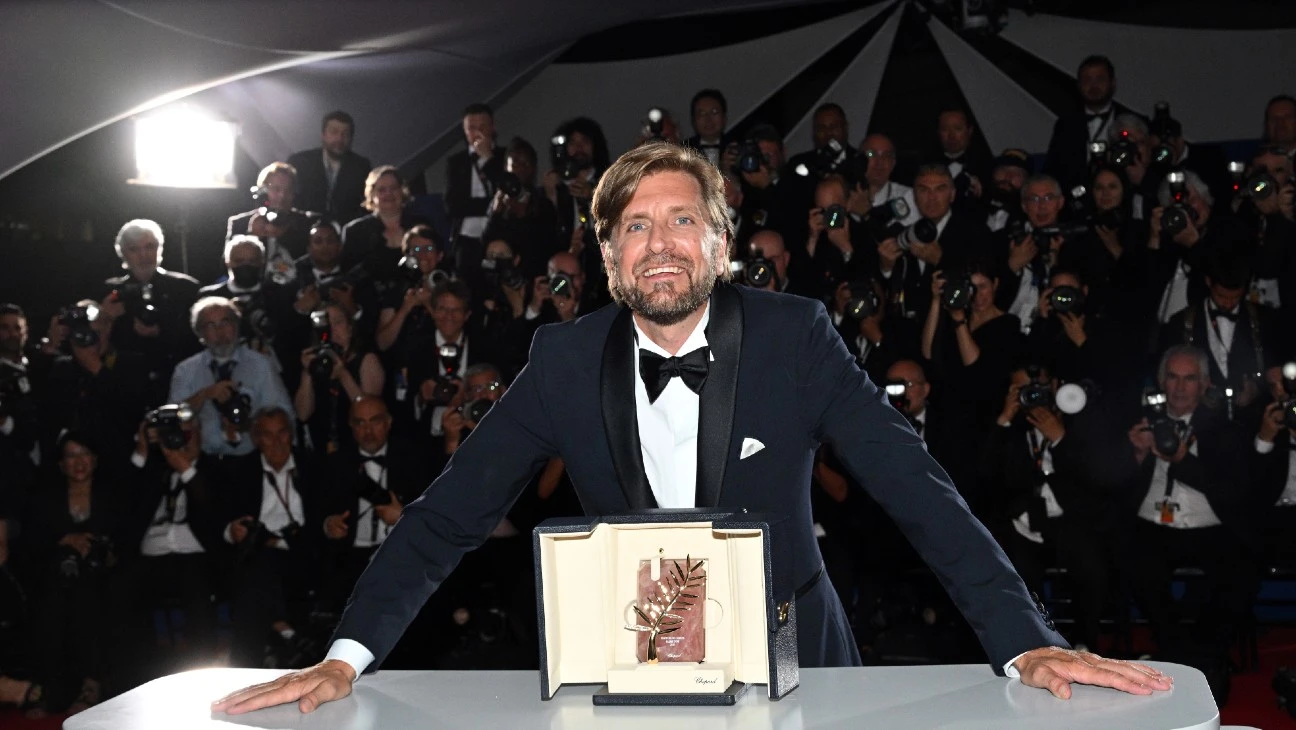
“It’s boring to have a consensus” says Cannes Jury President Ruben Östlund
NOTE: This article is a republication- Source: Nordisk Film & TV Fond (by Annika Pham).
On Tuesday, the double Palme d’or winning Swedish director told the press and co-jurors he was anti consensus, pro diversity in film, and pro-European cinema.
A big fan of group dynamics exploration, a leitmotif in his filmography, including in his two Palme d’or movies The Square (2017) and Triangle of Sadness (2022), Östlund said he would equally try to understand the dynamic within his group of eight co-jurors, promote open and democratic speech and resist consensus decision-making.
“I want to encourage people not to go into consensus,” he told the packed audience at Tuesday’s press conference at the Palais des Festivals. It’s boring to have a consensus - we all come from different backgrounds and can bring something unique [to the jury deliberation]. We have to follow our first instincts when we see a film, and not be afraid to say something stupid …We will have loud debates and hopefully also warm feelings in the background”, said the Swede.
Expanding on his jury duty, Östlund said the festival itself had clear recommendations and guidelines on how to tackle “all possible scenarios” while evaluating the 21 films in competition this year. But he also confessed that he had set his own rules: not to spread rumours about the films (“we will keep our mouths shut!”) and for the jurors to deliberate after watching three films in a row.
Asked by a member of the press about gender representation in the Cannes competition - six women are vying for the Palme d’or, an all-time record - and the festival’s choice to select the Johnny Depp vehicle Jeanne Du Barry as opening film, amid the backlash of Depp’s messy divorce from actress Amber Heard, Östlund widened the representation debate to class divide.
He said as a teacher at Gothenburg’s HDK Valand, beyond the gender issue, he had noticed how the difference in class had detrimental effects on the sustainability of the industry. “There is something about people’s financial insecurity that make them drop out from [their film path],” he regretted.
Citing his own experience of growing up in Styrsö in Västra Götaland, the director said he was grateful for the local commune’s initiative to provide school kids with filmmaking tools, to keep them busy in their spare time and sparkle new passions. “This is what inspired me to become a director,” he confessed.
Asked also about Cannes, the social unrest in France and protests on the Croisette, the director of Force Majeure said he was fully supportive of them. “This is also part of the Cannes history,” he noted, referring to May 1968 when Jean-Luc Godard and François Truffaut led protests in solidarity with the student revolution, that ended up with the shutdown of the festival.
Ultimately for Östlund, Cannes is the mecca of film as an art, where culture is being celebrated. Referring to his Valand Academy film education in the late 1990s, he said. “It was interesting how teachers would always go back to Cannes. “Today”, he continued, “I see myself as part of the European film tradition, where cinema plays a role in European culture, and I’m willing to fight for this.”
Pondering on his double wins in Cannes, the star filmmaker said “the Palme d’or is one of the greatest prizes in the world”. Comparing it with the Oscars, he admitted the Hollywood recognition was probably more impactful on the “average audience”. “But for me, it’s an easy choice between the Oscars and the Palme d’or. I’d rather have one more Palme than an Oscar!” he claimed.
Finally in a vehement pro-big screen speech, which he reiterated at the Cannes opening ceremony, the Swedish director denounced the streamers’ algorithm “that want to keep us watching, not thinking.”
He cited the overflow of images and dire reality of the 45 billion cameras in the world, “that influence our world”. A fact mentioned in the Sundance winning documentary And the king Said-What a fantastic machine, which he executive produced for Plattform.
“We have to bear this in mind, and remember that watching films together in cinemas is key”, he pointed out.
Next to Östlund, this year’s Cannes jury comprises US actors Paul Dano and Brie Larson, French Palme d’or winning director Julia Ducournau (Titane), French actor Denis Ménchet, Zambia-born Welsh director Rungano Nyoni (I'm Not a Witch), Moroccan director Maryam Touzani (Blue Caftan), Argentinian director Damián Szifron (Wild Tales), and Afghan French-based author and director Atig Ranimi.
This year’s Cannes winners will be announced May 27.